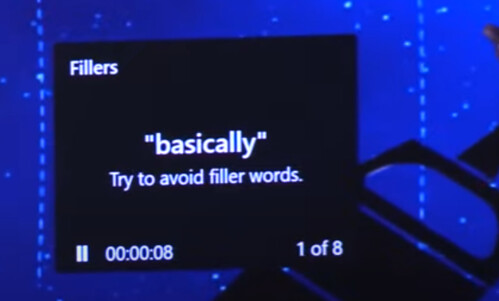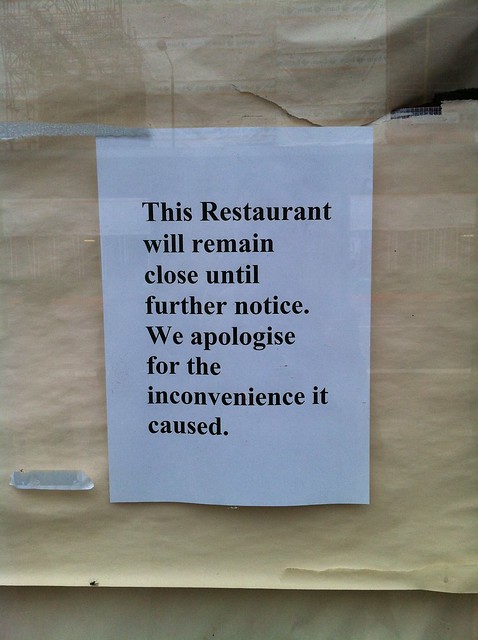"And this necessary lock-in is arguably the source of today’s ire. Whereas 2004's Web2 was reckoning with marketplace failure, 2021's Web3 is reckoning with user failure. We are a community of people failing the marshmallow test, always optimizing for less friction, more dopamine and shorter feedback cycles. We claim to want richer experiences, to support independent actors, to despise centralization and to demand more meaningful connections and higher quality content. But then we unlock our phones. And so Google, Facebook and Twitter’s success with data-based ad monetization and engagement optimized user experience is now the problem, not the solution."
Russell Davies
As disappointed as you are
About | Feed | Archive | Findings | This blog by email
Notes for a talk - more Ursula
"We live in capitalism. Its power seems inescapable. So did the divine right of kings. Any human power can be resisted and changed by human beings. Resistance and change often begin in art, and very often in our art, the art of words."
June 20, 2022 | Permalink
Notes for a talk - Wordle is a Love Story
"But since Wordle was built originally for just Mr. Wardle and Ms. Shah, the initial design ignored a lot of the growth-hacking features that are virtually expected of games in the current era. While other games send notifications to your phone hoping you’ll come back throughout the day, Wordle doesn’t want an intense relationship.
“It’s something that encourages you to spend three minutes a day,” he said. “And that’s it. Like, it doesn’t want any more of your time than that.”
June 18, 2022 | Permalink
Notes for a talk - these things
June 17, 2022 | Permalink
Notes for a talk - Where the Amish Go On Vacation
Because the images. And these thoughts:
"‘The Amish communities of Pennsylvania, despite the retro image of horse-drawn buggies and straw hats, have long been engaged in a productive debate about the consequences of technology,’ noted Wired magazine in 1999. In 2013, an NPR reporter observed that the ‘Amish community [is] not anti-technology, just more thoughtful’. Kevin Kelly, the co-founder of Wired, spent time geeking out with ‘Amish hackers’ and peeking into workshops whose modern machines are powered by compressed air for his book What Technology Wants (2010). He concluded that: ‘In any discussion about the merits of avoiding the addictive grip of technology, the Amish stand out as offering an honourable alternative.’
Above all, decide to be OK with seeming eccentric. The Amish’s unusual approach has allowed them to survive for centuries, even while other cooperatives and intentional communities fall by the wayside."
June 16, 2022 | Permalink
Notes for a talk - Let's Occupy Technology With Love
Two things about technology
The first thing is that Zoom gives everyone headaches.
It’s not just you.
And the second is that we all, over time, co-create the digital products we use.
June 15, 2022 | Permalink
Notes for a talk - Sontag, Owolade
"The whole point of Camp is to dethrone the serious. Camp is playful, anti-serious. More precisely, Camp involves a new, more complex relation to “the serious.” One can be serious about the frivolous, frivolous about the serious."
"The context in which we consume - and tell - stories has always mattered. The American anthropologist Polly Wiessner argues that when humans tamed fire, they not only extended the day but also created the conditions in %3D which a new kind of storytelling could thrive. "Stories told by firelight put listeners on the same emotional wavelength," she wrote in a 2014 paper based on her time studying the Ju/'hoan or !Kung Bushmen of southern Africa. During the day, these hunter-gatherers did mundane things. At night, the stories they told around the campfire unleashed their imaginations."
June 14, 2022 | Permalink
Notes for a talk - Ways of Being
These bits from Ways of Being are somehow in the mulch:
'What counts as technology is also much debated. I like the definition given by the science fiction writer Ursula Le Guin, in a rebuff to critics who accused her of not including enough of it in her work. ‘Technology’, she wrote, ‘is the active human interface with the material world.’ Its definition, for Le Guin, wasn’t limited to ‘high’ technology, like computers and jet bombers; rather, it referred to anything that was produced by human ingenuity. That included fire, clothing, wheels, knives, clocks, combine harvesters – and paperclips. To those who consider technology, whether high or low, to be too complex, too specialized or too abstruse to think fully and clearly about, Le Guin had some words of encouragement: ‘I don’t know how to build and power a refrigerator, or program a computer, but I don’t know how to make a fishhook or a pair of shoes, either. I could learn. We all can learn. That’s the neat thing about technologies. They’re what we can learn to do.’ That is worth keeping in mind as we proceed, because we will be encountering plenty of examples of ‘high’ technology that might seem daunting at the outset – but every one of them has been thought, learned and done by someone who sleeps at night and shits in the morning. We can learn to do them too.'
(This also reminds me of me disliking Shop Class as Soul Craft. Which, I'd forgotten, ends with a reference to the same bit of Le Guin.)
'As we shall see, the subjecthood of which we speak springs up all around us when we consider how we relate to everything else. Being itself is relational: a matter of interrelationships. All that is required for sticks and stones to leap into life, wrote the Brazilian anthropologist Eduardo Viveiros de Castro, is our own presence. Our human agency and intentionality transforms the objects of culture into subjects, through the meaning we give to them and the uses we put them to. While the machines we are constructing today might one day take on their own, undeniable form of life, more akin to the life we recognize in ourselves, to wait for them to do so is to miss out on the full implications of more-than-human personhood. They are already alive, already their own subjects, in ways that matter profoundly to us and to the planet. In the words often attributed to Marshall McLuhan (but more properly ascribed to Winston Churchill): ‘we shape our tools, and thereafter our tools shape us.’ We are the technology of our tools: they shape and form us. Our tools have agency, and thus a claim upon the more-than-human world as well. This realization allows us to begin the core task of a technological ecology: the reintegration of advanced human craft with the nature it sprung from.'
'We have come, as the shock of more-than-human consciousness testifies, to think of ‘nature’ as something separate from ourselves. When we speak of the fantastical futures envisioned by high technology, we speak of a ‘new’ or ‘next’ nature, some utopia of computation which further alienates and supplants the actual ground we came from and still stand upon. It is time to put aside such adolescent solipsism – both for the sake of ourselves and of the more-than-human world. There is only nature, in all its eternal flowering, creating microprocessors and datacentres and satellites just as it produced oceans, trees, magpies, oil and us. Nature is imagination itself. Let us not re-imagine it, then, but begin to imagine anew, with nature as our co-conspirator: our partner, our comrade and our guide.'
'For Epstein, seeing is necessary for knowing and caring, and thus for acting. I would add to this the quality of practice. The act of making time-lapses for myself, whether of my living room or the whole Mediterranean basin, engenders in me an attentiveness to plant and planetary time that I do not gain merely from watching others’ footage on YouTube...Viewing inspires awe, but practice generates knowledge and understanding. The tools of technology, to be effective in producing altered states, require us to be full participants in their revelations, not mere audiences. This is why it’s so important that we are given access not just to the products of all these wondrous technologies – the beautiful images shot by satellites – but to the technologies themselves. What must be made available to all is education in their actual use: the knowledge and know-how to design and deploy them critically and thoughtfully, and real access to existing tools and processes. It is not enough to turn the machines around – to point the satellites outward, rather than at ourselves. They must also be shared out and placed in the hands of everyone.'
'Today, ‘lol’ has escaped the boxes of IM and SMS to become something people actually say: not just a new word, but a new utterance. Unlike ‘haha’ and ‘hehe’, which are onomatopoeias birthed in the convulsion of the human lungs, ‘lol’ is a product of the constriction of space and time in computer systems. It is an environmental effect on language, that supposedly innate human trait which might instead be understood as the world – or, in this case, the machine – speaking through us.'
'I’m just sixty kilometres from the site where I first smelled petroleum on the breeze and learned of plans to use rapacious, corporate AI to crack open and despoil the land, but the journey from one place to another has encompassed gibbons, elephants, giant redwoods and slime moulds; neural networks, non-binary computers, satellites and self-driving cars; the I Ching, the music of John Cage and Sámi joikers, new forms of ancient governance, and herds of GPS-augmented antelope. The world is a computer made out of crabs, infinitely entangled at every level, and singing, full-throated, the song of its own becoming. The only way forward is together.'
June 13, 2022 | Permalink

